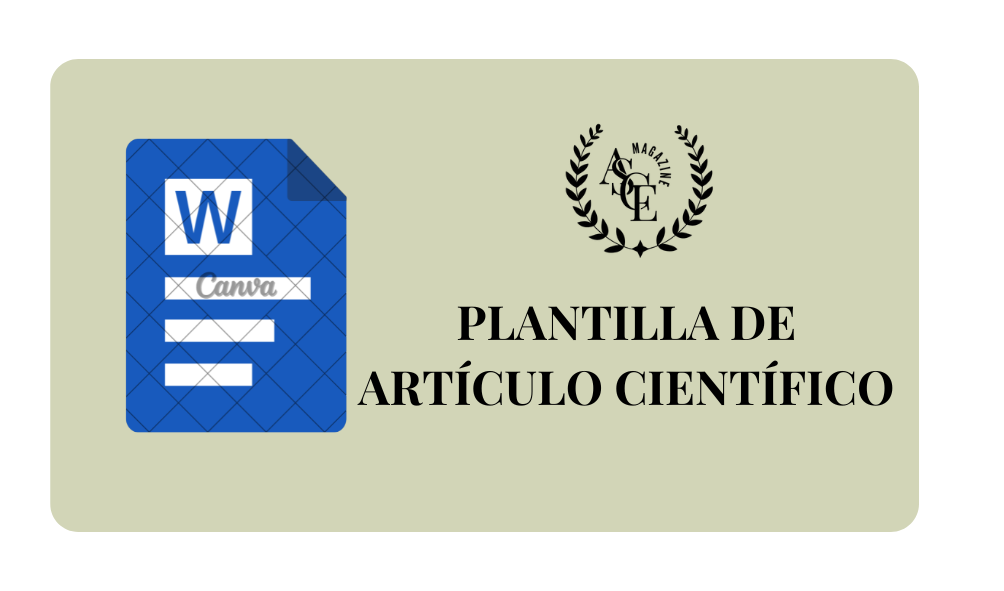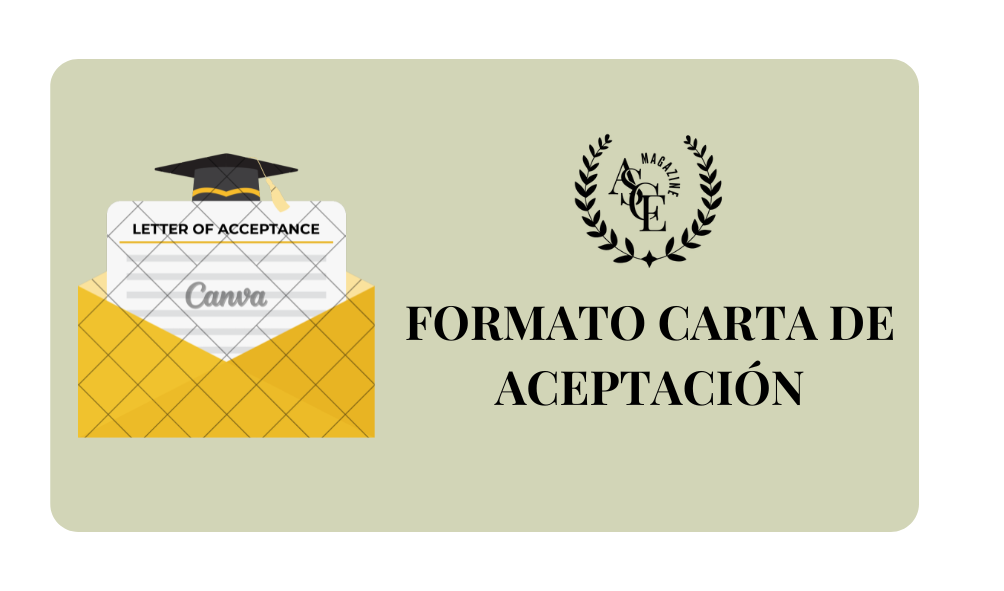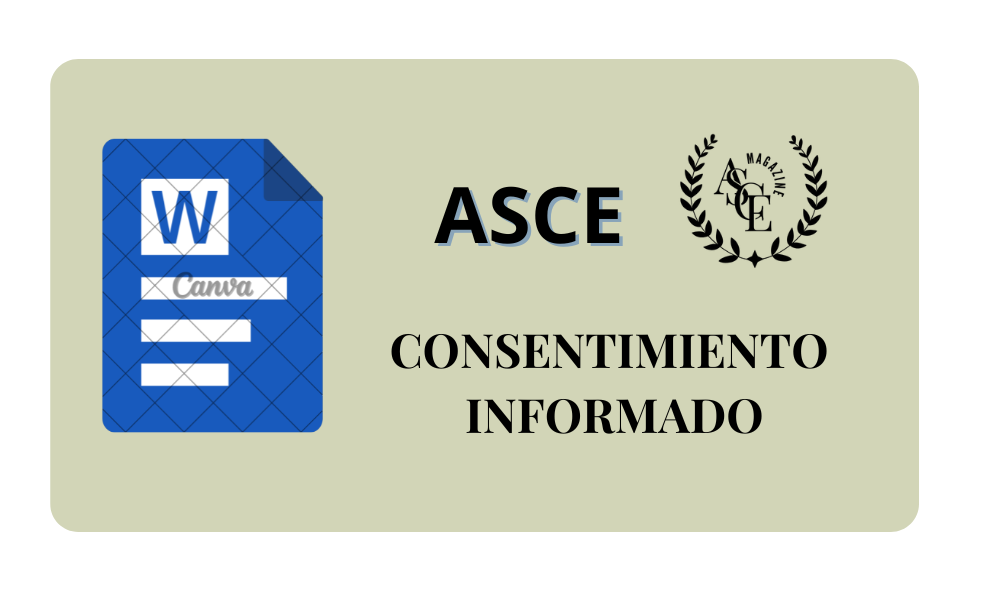“La Motivación como Garantía del Debido Proceso: un Análisis Jurisprudencial Comparado entre la Corte Constitucional Ecuatoriana y la Corte Interamericana de Derechos Humanos”
DOI:
https://doi.org/10.70577/asce.v4i4.518Palabras clave:
Derecho a la Motivación; Proceso; Corte Constitucional del Ecuador; Corte Interamericana de Derechos Humanos; Jurisprudencia Comparada; Control de Convencionalidad.Resumen
El objetivo del presente estudio es el análisis comparativo acerca de la motivación como un pilar fundamental del debido proceso, centrándose en la jurisprudencia de la Corte Constitucional del Ecuador y la Corte Interamericana de Derechos Humanos. Resaltando las similitudes, diferencias y contribuciones doctrinales que ayuden a entender cómo ambas cortes han desarrollado y fortalecido el estándar de motivación en sus respectivos ámbitos de actuación. La investigación se basa en un enfoque cualitativo y una perspectiva jurídico dogmática, además del estudio sistemático del derecho positivo vigente y el análisis detallado de sentencias relevantes. Se examinaron normas constitucionales, convencionales y procesales, fallos clave que permiten seguir la evolución histórica de los criterios utilizados por ambas cortes. Los resultados revelan una coincidencia significativa entre ambas jurisdicciones en cuanto a que la motivación es un instrumento esencial previniendo la arbitrariedad y certificando decisiones judiciales que sean transparentes, fundamentadas y legítimas. Además, se ha identificado diferencias en la interpretación y aplicación de ciertos elementos del estándar de motivación, como desafíos persistentes en el contexto ecuatoriano, especialmente en lo que respecta a la aplicación efectiva del control de convencionalidad como mecanismo de armonización normativa. Finalmente, el análisis comparativo dejar ver que la motivación no es solo un requisito formal, sino un componente fundamental ya que exige una severidad argumentativo y coherencia en las resoluciones judiciales. Esta investigación brinda material valioso para fortificar su aplicación en el Ecuador y contribuyendo a mejorar la calidad y legitimidad del sistema de justicia.
Descargas
Citas
Aguas, A. C., & Molina, A. W. (2024). El principio de proporcionalidad en las sanciones administrativas en el ordenamiento jurídico ecuatoriano. Revista Muldisciplinar, 9(4), 726-740. https://doi.org/10.33386/593dp.2024.4.2573 DOI: https://doi.org/10.33386/593dp.2024.4.2573
Alexy, R. (2011). Los derechos fundamentales y el principio de proporcionalidad. C. Bernal Pulido, Trad.. Universidad Externado de Colombia. Obtenido de https://recyt.fecyt.es/index.php/REDCons/article/view/40010
Alí, L. P. (2021). EL PLENO DE LA CORTE CONSTITUCIONAL DEL ECUADOR, EN EJERCICIO DE SUS ATRIBUCIONES CONSTITUCIONALES Y LEGALES, EMITE LA SIGUIENTE. En S. 1.-1.-E. motivación. Obtenido de https://esacc.corteconstitucional.gob.ec/storage/api/v1/10_DWL_FL/e2NhcnBldGE6J3RyYW1pdGUnLCB1dWlkOidkYjI2NzM0NS05MjE2LTQ1ZDMtOGE5Ny03YTg2ZTAyMmYwYmYucGRmJ30=?fbclid=IwAR1ArJVS3zV7Q-WA4PsQ_BzRVA6wx9DEbmPHuxiWGijvVGH6nodJ3dit9hk
Altamirano, C. R. (2023). Análisis argumentativo del derecho al debido proceso en la motivación de la sentencia n° 196-15-ep/20. Pontificia Universidad Católica del Ecuador. Obtenido de https://repositorio.puce.edu.ec/server/api/core/bitstreams/f6deef51-9b9a-4935-ac99-0244392bfa5d/content
Arias, C. J., & Osorio, T. N. (2020). Límites y alcances constitucionales de la prisión preventiva desde la jurisprudencia de la corte interamericana de derechos humanos”. Univeridad de Otavalo. Obtenido de https://repositorio.uotavalo.edu.ec/server/api/core/bitstreams/bb746a1b-e353-4d1b-9562-7ad28c406c6f/content
Asamblea Nacional . (2008). Constitución de la República del Ecuador. https://www.defensa.gob.ec/wp-content/uploads/downloads/2021/02/Constitucion-de-la-Republica-del-Ecuador_act_ene-2021.pdf.
Bajaña, F. (2025). Suficiencia y corrección motivacional: Análisis crítico de garantía de la motivación. Revista De La Facultad De Jurisprudencia, 17(1), 51–77. https://doi.org/10.26807/rfj.v2025n17.533
Código Orgánico de la Función Judicial. (2015). El pleno de la comisión legislativa y de fiscalización. Ediciones Legale. Obtenido de https://www.etapa.net.ec/Portals/0/TRANSPARENCIA/Literal-a2/CODIGO-ORGANICO-DE-LA-FUNCION-JUDICIAL.pdf
CODIGO ORGANICO GENERAL DE PROCESOS, COGEP. (2018). Registro Oficial Suplemento 506 de 22-may.-2015. Estado: Reformado. Retrieved from https://www.telecomunicaciones.gob.ec/wp-content/uploads/2018/09/Codigo-Orgánico-General-de-Procesos.pdf
Convención Americana sobre Derechos Humanos. (1978). Gaceta Oficial No. 9460 del 11 de febrero de1978. https://www.oas.org/dil/esp/1969_Convención_Americana_sobre_Derechos_Humanos.pdf.
Corral, P. C. (2021). El pleno de la corte constitucional del ecuador, en ejercicio de sus atribuciones constitucionales y legales, expide la siguiente. Sentencia No. 4-18-IS/21, 3(1), 1-5. Obtenido de https://esacc.corteconstitucional.gob.ec/storage/api/v1/10_DWL_FL/e2NhcnBldGE6J3RyYW1pdGUnLCB1dWlkOidjNTZlNmU3NS00NjA2LTQ5YTgtYTI5ZS01ZmNiYmE0YThiNDcucGRmJ30=
Corte Constitucional del Ecuador. (2010). LA CORTE CONSTITUCIONAL Para el período de transición. En R. O. 202. Obtenido de https://esacc.corteconstitucional.gob.ec/storage/api/v1/10_DWL_FL/eyJjYXJwZXRhIjoicm8iLCJ1dWlkIjoiYjEyMWVmYmEtN2JlYS00ZWYyLTlmMWQtZWUyOTUzMTYwNmI0LnBkZiJ9#:~:text=La%20seguridad%20constituye%20un%20conjunto,el%20conocimiento%20del%20ordenamiento%20jurídic
Corte Constitucional del Ecuador. (2014). Sentencia 014-14-SEP-CC - Acéptase la acción extraordinaria de protección presentada por el economista Fabián Soriano Idrovo. En C. N. 0954-10-EP. Obtenido de https://vlex.ec/vid/aca-extraordinaria-fabia-soriano-idrovo-520907778
Corte IDH. (2005). Caso Yatama vs. Nicaragua. Sentencia de 23 de junio de 2005 (Excepciones Preliminares, Fondo, Reparaciones y Costas). Obtenido de https://www.linguee.es/espanol-ingles/traduccion/si+fuera+el+caso.html.
Corte IDH. (2006). Caso Almonacid Arellano y otros vs. Chile. Sentencia de 26 de septiembre de 2006 (Excepciones Preliminares, Fondo, Reparaciones y Costas). Obtenido de https://www.linguee.es/espanol-ingles/traduccion/si+fuera+el+caso.html.
Corte IDH. (2005). Caso Palamara Iribarne vs. Chile. Sentencia de 22 de noviembre de 2005. Fondo, Reparaciones y Costas, 42(6), 134. Obtenido de https://www.linguee.es/espanol-ingles/traduccion/si+fuera+el+caso.html.
Denzin, N. K., & Lincoln, Y. S. (2018). The SAGE Handbook of Qualitative Research. SAGE Publications; 5th edision. Obtenido de https://uk.sagepub.com/en-gb/eur/the-sage-handbook-of-qualitative-research/book275161
Dworkin, R. (2011). Justice for Hedgehogs. Belknap Press of Harvard University Press. DOI: https://doi.org/10.4159/9780674059337
Ferrer, M., & E., G. (2011). El control de convencionalidad (Control de constitucionalidad y control de convencionalidad. Porrúa.
Ferrer, M.-G. E. (2021). CUADERNILLO DE JURISPRUDENCIA DE LA CORTE INTERAMERICANA DE DERECHOSHUMANOS Nº 7: CONTROL DE CONVENCIONALIDAD. Centro Interamericado de Derechos Humanos. Obtenido de https://www.corteidh.or.cr/sitios/libros/todos/docs/cuadernillo7.pdf
Figuera, V. S., Cedeño, D. C., & Camacho, B. M. (2017). Métodos de razonamiento lógico-jurí¬dico aplicados a decisiones judiciales: la jurisprudencia como mecanismo de poder estatal. Facultad de Jurisprudencia, 1(2), 1-18. https://doi.org/10.26807/rfj.v1i2.23 DOI: https://doi.org/10.26807/rfj.v1i2.23
Freire, C. K., & López, M. D. (2025). El debido proceso en la garantía de motivación: Análisis de la Sentencia 212-20 EP/24 - CC. LATAM Revista Latinoamericana de Ciencias Sociales y Humanidades, Asunción, Paraguay., 6(1), 2789-3855,. https://doi.org/10.56712/latam.v6i2.3921 DOI: https://doi.org/10.56712/latam.v6i2.3921
Moreno, V. J. (2024). Estudio sobre la aplicación de la garantía de la motivación en las decisiones de los administradores de justicia con respecto a la prisión preventiva. Universidad Andina Simón Bolívar. Obtenido de https://repositorio.uasb.edu.ec/bitstream/10644/10051/1/T4393-MDPE-Moreno-Estudio.pdf
Morris, B. B., & Isaza, G. J. (2022). Criterios de racionalidad en la aplicación del derecho. Revista de Derecho, 58(1), 53-79. https://doi.org/10.14482/dere.58.321.897 DOI: https://doi.org/10.14482/dere.58.321.897
Paredes, N. W., Samaniego, C. D., Diaz, B. I., & Soxo, A. J. (2022). La motivación como una garantía del debido proceso en el sistema de aplicación de justicia ecuatoriana. Revista Universidad y Sociedad, 14(S4), 674-681. Retrieved from https://rus.ucf.edu.cu/index.php/rus/article/view/3181
Pérez, L. J. (2012). La motivacion de las decisiones tomadas por cualquier autoridad publica. En d. y. Social. Universidad Complutense. Obtenido de https://dialnet.unirioja.es/descarga/articulo/5496561.pdf
Ramírez, M. (2005). El debido proceso. Revista de Derecho Constitucional,, 12(1), 5-25. Obtenido de https://dialnet.unirioja.es/descarga/articulo/5238000.pdf
Ricaurte, C. (2022). Análisis a partir de la sentencia 1158-17-EP/21 de la Corte Constitucional del Ecuador. RevistaCalamo, 39(11), 12 -23. Obtenido de https://revistas.udlapublicaciones.com/index.php/RevistaCalamo/article/view/39/163
Rodríguez, R. V. (2020). El debido proceso legal y la convención americana sobre derechos humanos. Corte Interamericana de Derechos Humanos. https://doi.org/https://www.corteidh.or.cr/tablas/a17762.pdf
Santacruz, H. B., & Erazo, B. S. (2023). Derecho Penal Ecuatoriano parte general. Pontificia Universidad Católica del Ecuador - Sede Ibarra. Obtenido de https://www.pucesi.edu.ec/webs2/libros-docentes/2023/Libro-final-DERECHO-PENAL-ECUATORIANO.pdf
Silva, A. G., Viteri, N. B., Piray, R. P., & Silva, A. D. (2023). Análisis del principio de motivación en la jurisprudencia constitucional: un enfoque en la sentencia no. 1158-17 EP/21 de la Corte Constitucional. Revista Dilemas Contemporáneos: Educación, Política y Valores., 6(2), 1-18. Retrieved from https://dilemascontemporaneoseducacionpoliticayvalores.com/index.php/dilemas/article/view/3946
Storini, C., Masapanta, G. C., & Guerra, C. M. (2022). Control de constitucionalidad en Ecuador: muchas alforjas para tan corto viaje. Revista de Derecho, 38(1), 7-27. https://doi.org/10.32719/26312484.2022.38.1 DOI: https://doi.org/10.32719/26312484.2022.38.1
Tito, D. E., & Fueltala, S. A. (2021). La motivación como garantía del debido proceso en la jurisprudencia constitucional comparada de Ecuador y Perú. Universidad de Otaválo. Retrieved from http://repositorio.uotavalo.edu.ec/handle/52000/526
Vargas, d. C. (2017). Ronald Dworkin, Justice for Hedgehogs, Cambridge, Mass. Díkaion Revista de Fundamentación Jurídica, 26(2), 356-365,. https://doi.org/10.5294/dika.2017.26.2.6 DOI: https://doi.org/10.5294/dika.2017.26.2.6
Descargas
Publicado
Cómo citar
Número
Sección
Licencia
Derechos de autor 2025 Telenchana Carrillo, Bryan Andrés, Suarez Venegas, Ramiro Javier

Esta obra está bajo una licencia internacional Creative Commons Atribución-NoComercial-CompartirIgual 4.0.
Eres libre de:
- Compartir : copiar y redistribuir el material en cualquier medio o formato
- Adaptar : remezclar, transformar y desarrollar el material
- El licenciante no puede revocar estas libertades siempre y cuando usted cumpla con los términos de la licencia.
En los siguientes términos:
- Atribución : Debe otorgar el crédito correspondiente , proporcionar un enlace a la licencia e indicar si se realizaron cambios . Puede hacerlo de cualquier manera razonable, pero no de ninguna manera que sugiera que el licenciante lo respalda a usted o a su uso.
- No comercial : no puede utilizar el material con fines comerciales .
- CompartirIgual — Si remezcla, transforma o construye sobre el material, debe distribuir sus contribuciones bajo la misma licencia que el original.
- Sin restricciones adicionales : no puede aplicar términos legales ni medidas tecnológicas que restrinjan legalmente a otros hacer algo que la licencia permite.

























